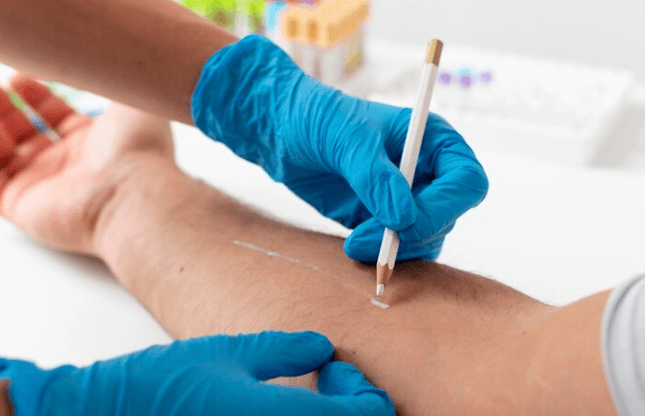The arrival of the monsoon season brings much-needed relief from the scorching heat, but it also increases the risk of mosquito-borne diseases, especially dengue. The combination of standing water, humid conditions, and dense urban settings creates a perfect environment for mosquitoes to breed, putting everyone at risk. Dengue fever, caused by the dengue virus, is primarily spread through the bite of the Aedes mosquito. Timely detection and testing for dengue are essential, especially in highly populated cities like Delhi, where cases often surge during this season.
This blog will discuss the significance of dengue testing, particularly focusing on the benefits of timely diagnosis and why the dengue test becomes crucial each monsoon.
Understanding Dengue and Its Symptoms
Dengue fever is a viral infection that can result in a wide range of symptoms, from mild flu-like conditions to severe illness, which can be life-threatening without proper treatment. The common symptoms include:
- High fever
- Severe headaches
- Pain behind the eyes
- Joint and muscle pain
- Skin rashes
- Nausea and vomiting
- Mild bleeding, such as nosebleeds or gum bleeding
If these symptoms are experienced, especially during the monsoon season, getting tested for dengue becomes crucial. Left undiagnosed, dengue can progress to severe stages, including Dengue Hemorrhagic Fever and Dengue Shock Syndrome, which may require hospitalization and intensive care.
Importance of Dengue Testing During the Monsoon Season
Dengue testing becomes even more important during the monsoon season because:
- Increased Mosquito Breeding: With the rise in stagnant water due to heavy rains, mosquito breeding grounds multiply. This leads to a higher risk of dengue transmission.
- Early Detection Saves Lives: Early testing and diagnosis of dengue allow individuals to start treatment at an initial stage, reducing the risk of complications.
- Helps Prevent Spread: When people know they are infected, they can take precautions to avoid mosquito bites, preventing the spread of dengue to others. Identifying and isolating cases is essential, particularly in densely populated areas like Delhi.
Types of Dengue Tests Available
Several tests are available to detect the presence of the dengue virus. If you’re in Delhi, it’s helpful to know about the common testing methods:
- NS1 Antigen Test: This test detects the presence of the dengue virus in the blood within the first few days of symptoms. It is commonly recommended for early detection.
- IgM and IgG Antibody Tests: These tests help confirm dengue infection by detecting antibodies produced by the immune system. The IgM antibody test is used in the early stages of infection, while IgG can indicate past infections.
- PCR Test: The Polymerase Chain Reaction (PCR) test confirms the dengue virus with high accuracy. However, healthcare providers more commonly perform it in advanced cases or when specific details are needed.
Getting the dengue test in Delhi can be convenient as many clinics, hospitals, and diagnostic centers offer these tests. During the monsoon, it is wise to seek out a test early if symptoms appear.
Why Opt for Dengue Testing in Delhi?
Delhi witnesses a spike in dengue cases every year during the monsoon. Taking preventive steps can help manage this risk, but testing is the only way to confirm an infection. Here’s why choosing a dengue test in Delhi is beneficial:
- Widespread Availability of Testing Centers: Delhi has numerous healthcare facilities that offer dengue testing, ensuring quick and easy access to diagnosis.
- Specialized Labs and Services: Many labs in Delhi employ experienced professionals and use advanced equipment to deliver reliable results.
- Early Intervention Possibilities: Delhi’s medical infrastructure is well-equipped to handle dengue cases, and early detection allows patients to receive proper care, reducing the risk of complications.
How to Prevent Dengue During the Monsoon
While testing is essential if symptoms appear, prevention is equally crucial. Here are some tips to protect yourself from dengue:
- Use Mosquito Repellents: Apply mosquito repellent, especially during early mornings and evenings when mosquitoes are most active.
- Wear Protective Clothing: Long-sleeved shirts, pants, and light-colored clothing can help reduce the risk of mosquito bites.
- Eliminate Standing Water: Ensure no stagnant water around your home, as it is a breeding ground for mosquitoes.
- Install Mosquito Nets and Screens: Use mosquito nets over beds and install screens on windows and doors to prevent mosquitoes from entering.
Conclusion
Dengue testing is vital during the monsoon season, particularly in cities like Delhi, where the risk of transmission is higher. Recognizing symptoms early and opting for a dengue test can make a significant difference in the outcome. Early detection allows individuals to take the necessary steps toward recovery, reduces the risk of severe illness, and helps prevent the spread of dengue in the community. If you or someone you know is experiencing symptoms, especially during the rainy season, seeking timely testing and medical advice is the best step forward.






More Stories
Best Yoga Classes in Ajmer – Retreat
Uncovering Sasha Rodoy Role in the GMC Bias
Understanding Zytiga Generic: Benefits, Cost, and Availability